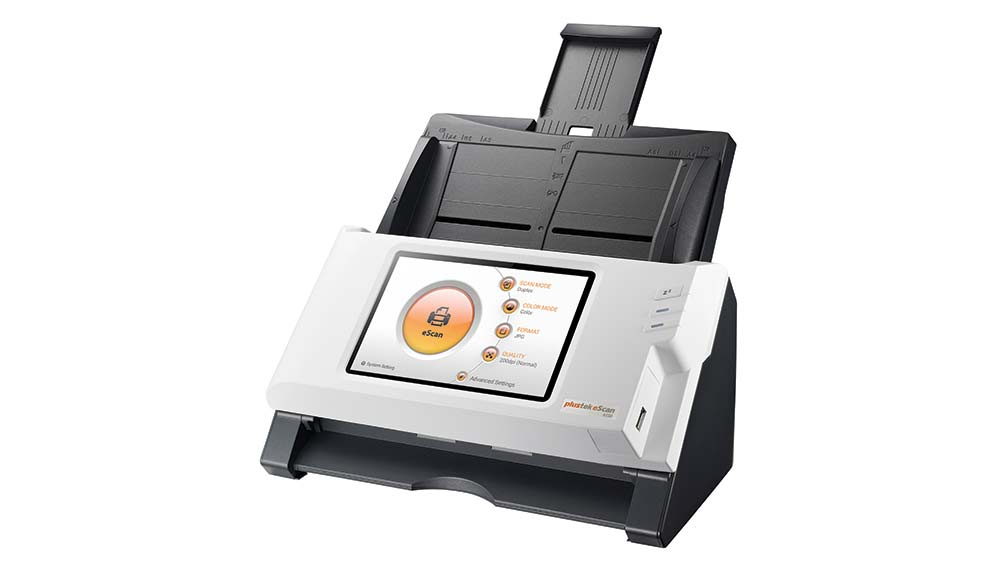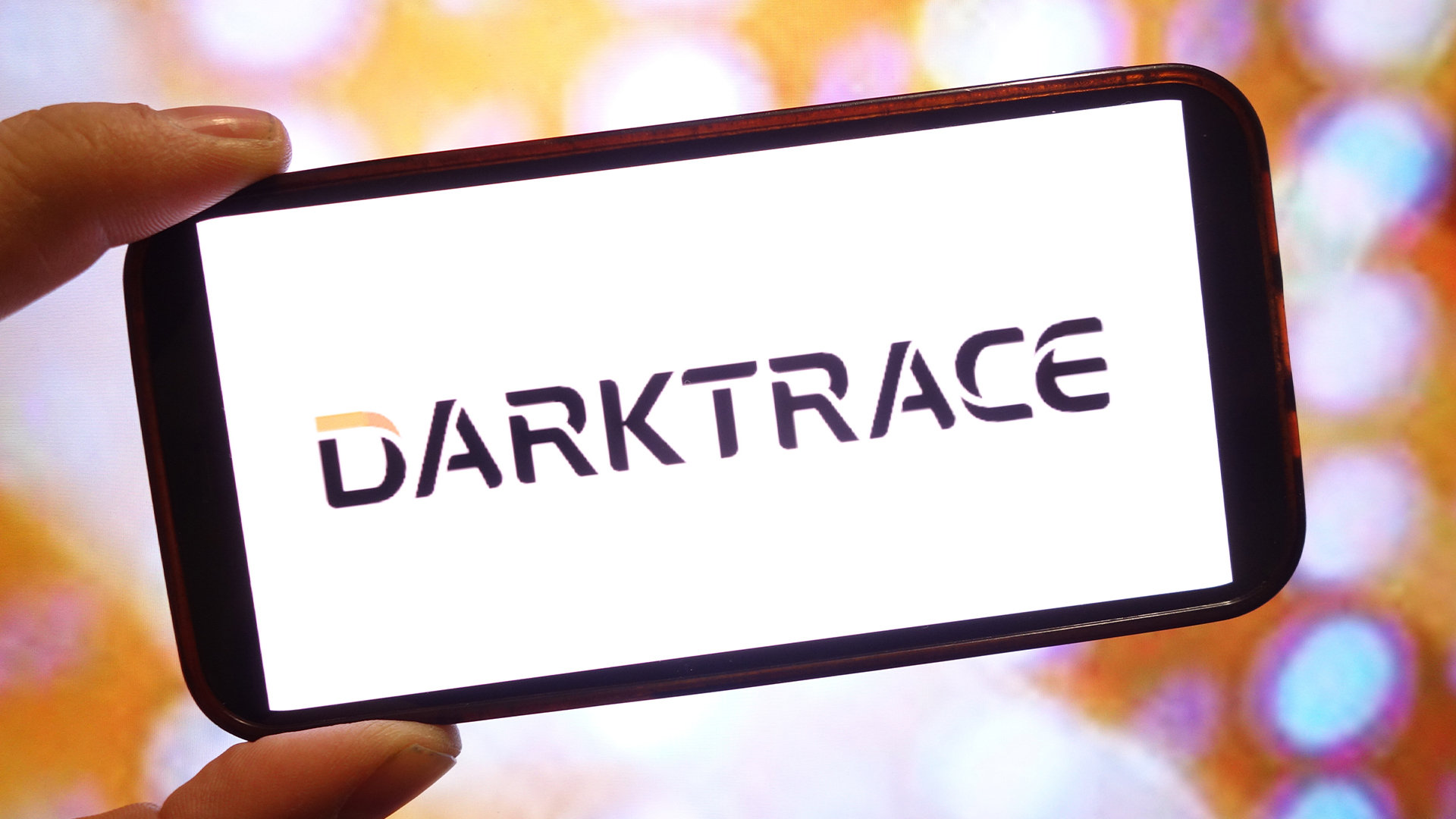Plustek eScan A150 review
An innovative network desktop scanner, but slow speeds make it best suited to light office duties

The A150 is easy to use and produced high-quality output, but it was disappointingly slow when scanning in colour
-
+
High scan quality; Relatively inexpensive
-
-
Slow colour scans

Standalone network scanners usually carry a price premium, but Plustek's eScan A150 bucks the trend with a relatively modest 379 price tag. The embedded Android OS makes it totally host-independent, and it offers integral wired and wireless networking, plus support for a wide range of scan destinations.
Installation was simple. We just plugged it in, connected it to our wired network and used its 7in colour touchscreen to set basic details such as time and language. Setting up a wireless network connection is also a cinch: we opened system settings, viewed the available networks and chose which one to join.
It took us a while to get the hang of the A150 because everything is configured at the touchscreen. We've grown used to network scanners, such as Brother's ADS-2600We, that use a separate app or web portal for remote device and scan setup.
General operations are also different: you scan your documents first and view them on the built-in screen, where you can crop or resize selected pages and change brightness and contrast. When finished, you tap the save button and select a destination from the menu.
The screen can display up to six destinations, including a USB stick, PC, email, FTP/ SFTP server, an SMB network share, SharePoint and mobile device. Cloud options are good too, with Plustek supporting Google Drive, Dropbox, Box and Evernote.
To scan to a PC, we used the touchscreen to copy a stored app from the scanner to a USB stick, and transferred it to our Windows 10 machine. The app can then place incoming scans in a specific folder, print them directly and link up with the bundled ABBYY FineReader and Presto! PageManager utilities for text recognition.
Once the app had been installed, the scanner automatically appeared as an entry in the PC destination list. The same applies to mobiles after loading Plustek's eScan iOS app on our iPad, it popped up in the scanner's menu as a new mobile destination.
Cloud scanning was painless. We used the screen menus to link it to our Dropbox and Google Drive accounts and to password-protect access. Scan processes can be turned into a swift two-step manoeuvre by saving scan jobs for repeated use.
Four soft buttons on the main screen let you choose resolution, colour and output format prior to scanning. The advanced settings screen allowed us to choose resolutions up to 600ppi, TIFF, JPEG, PNG, PDF or multi-page PDF formats, and enable features such as hole-punch removal, blank-page skipping and water-marking.
However, scan speeds are poor. The A150 can only achieve 15ppm for mono and 4ppm for colour at 200ppi. We asked it to send a 20-page sheaf of bank statements directly to a PC as a PDF. The duplex mono scans delivered 11ppm at 200ppi and 7.5ppm at 300ppi. Colour duplex scans dropped the speeds to 3.6ppm at 200ppi and only 2ppm at 300ppi.
The quality is high, but you should run the calibration process first or scans will look washed out. Mono and colour scan quality at 200ppi is good enough for archiving, and PageManager's OCR skills are beyond reproach. It had no problems with small receipts and bills, but there's no anti-skew feature. ID cards and credit cards could also be scanned, but only one at a time.
The A150 is easy to use, good value and produced high-quality output, but slow colour scan speeds means it's not suited for large or frequent bulk scanning jobs.
Verdict
The A150 is easy to use and produced high-quality output, but it was disappointingly slow when scanning in colour
600ppi colour optical resolution
Android OS
15/4ppm @ 200ppi mono/colour
simplex/ duplex
50-page ADF
7in LCD colour touchscreen
quad-core 1.6GHz RK3188 Cortex-A9 CPU
1GB DDR3 RAM
10/100 Ethernet
802.11an wireless
USB 2
daily duty cycle, 1,500
external PSU
Windows/ Mac client
ABBYY FineReader 9 Sprint and Presto! PageManager 9 SE software
318 x 170 x 189mm (WDH)
��One year RTB warranty
Get the ITPro daily newsletter
Sign up today and you will receive a free copy of our Future Focus 2025 report - the leading guidance on AI, cybersecurity and other IT challenges as per 700+ senior executives
Dave is an IT consultant and freelance journalist specialising in hands-on reviews of computer networking products covering all market sectors from small businesses to enterprises. Founder of Binary Testing Ltd – the UK’s premier independent network testing laboratory - Dave has over 45 years of experience in the IT industry.
Dave has produced many thousands of in-depth business networking product reviews from his lab which have been reproduced globally. Writing for ITPro and its sister title, PC Pro, he covers all areas of business IT infrastructure, including servers, storage, network security, data protection, cloud, infrastructure and services.
-
 Google faces 'first of its kind' class action for search ads overcharging in UK
Google faces 'first of its kind' class action for search ads overcharging in UKNews Google faces a "first of its kind" £5 billion lawsuit in the UK over accusations it has a monopoly in digital advertising that allows it to overcharge customers.
By Nicole Kobie Published
-
 Darktrace unveils tailored AI models with a twist for its cybersecurity agent
Darktrace unveils tailored AI models with a twist for its cybersecurity agentNews Darktrace has announced new AI models for its agentic AI security tool, but it's taken a novel approach to tackle hallucinations.
By Rory Bathgate Published
-
 This tech company wants to pay staff to look after their mental and physical wellbeing
This tech company wants to pay staff to look after their mental and physical wellbeingNews Hot on the heels of its four-day week trial, tech company Thrive is offering staff new incentives to take care of their mental and physical wellbeing.
By Ross Kelly Published